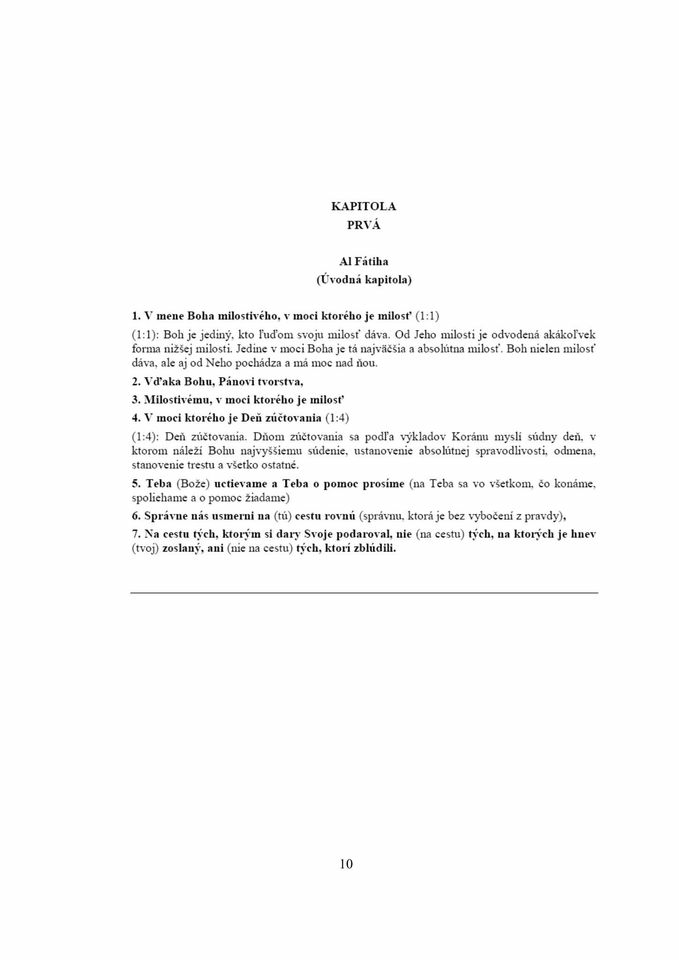Slovakia’s Muslim community is the smallest in Europe with around 5000 members. It has been noted as the only EU country without a mosque. Nevertheless, this community benefits from the Qur’an translation of Abdulwahab al-Sbenaty (2007). A Muslim activist of Syrian origin, al-Sbenaty graduated from the Faculty of Law of Comenius University (Bratislava). He is one of the founders of the Muslim Community in Slovakia (Komunita muslimov na Slovensku). Al-Sbenaty is also known for Islamic books such as “Marriage in Islam” (Manželstvo v islame, 1998). Recently, the author published a short but inspiring booklet on his own experience translating the Qur’an (Ako sme prekladali Korán do slovenského jazyka, 2019). He notes in the intro to the 1st edition that he surveyed many European translations and found them “obscure” due to a lack of necessary commentarial notes. He describes his own translation as “explanatory” in the manner of the English translation of M. Khan and T. al-Hilali.
His list of sources reveals his use of authoritative Islamic commentaries, both classical (al-Tabari, al-Zamakhshari, Ibn Kathir) and modern (al-Sa‘di, M. Ghazali). Along with the Khan-Hilali English translation, the Czech translation by Ivan Hrbek (1972) was consulted too. The main hermeneutical approach seems to be a moderate Sunni one; the translator does not reduce his work to the Salafi reading only. The different elements of the translation are arranged in accordance with the standard pattern of interpretative translations: it provides the text of the verses, supplying them by the extended commentarial notes in brackets.
As the introduction says, this translation must avoid any kind of “ambiguity” (nejasnost). This aim is pursued by means of adding explanatory notes. Sometimes the size of these additions surpasses the very text of the translation of the verses, e.g. the translation of 55:4 reads: Naučil ho (človeka) výrečnosti (ako má čo najjasnejšie vyjadrovať svoje pocity, potreby a zámery, ako má používať jazyk a hlas, ktorým ho Boh obdaril). [He taught him (man) utterance (to express feelings, needs and intentions, such as use of language and voice which God gave).] The translation is written in the modern Slovakian literary language. From the perspective of the target text, many tools of domestication were applied:
In contrast to many other Muslim translations, Abdulwahab al-Sbenaty renders Allah as “God” (Bog); names of the prophets and other characters are given in their Christian forms and kapitola (“chapter”) is used for surah. The scarcity of prior translations from Arabic into Slovakian necessitates finding new solutions in the target text. E.g. bismillah has been translated as “In the name of God the Merciful, in Whose power the mercy is” (V mene Boha milostivého, v moci ktorého je milosť).
The 1st edition appeared in 2008, and a revised one since 2015. For Slovakian-speaking Muslims (both migrants from Muslim countries and local converts) this seems to be among the most referred-to sources to access the Qur’an.
Mykhaylo Yakubovych


